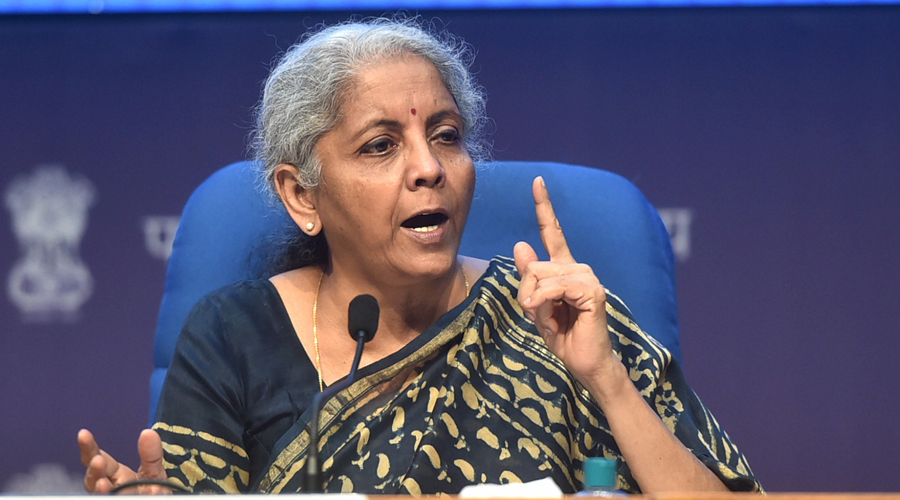The Centre has sought suggestions on possible changes in direct and indirect taxes from trade and industry bodies with the objective of broadening the tax base, while reducing the rates in the next budget which is due in three months.
The finance ministry’s revenue department has written to the various organisations to give their suggestions within 10 days.
North Block officials said they were reviewing personal and corporate tax exemptions. They could be rationalised or rolled back in the budget based on the costs and benefits of the exemptions.
The capital gains tax exemption for investing in startups which expires in March may be reviewed. The basic customs duty and IGST (integrated goods and services tax) exemptions for export-oriented units is also being monitored, the officials said.
The ministry has asked for suggestions on reducing compliances, providing tax certainty and reducing litigations. The organisations can also give recommendations on excise and custom duty. However, no suggestions on the goods and services tax (GST) would no be entertained as that is the domain of GST Council.
In Budget 2020-21, the income-tax act provided for more than 100 exemptions and deductions of different nature. “I have removed around 70 of them in the new simplified regime. We will review and rationalise the remaining exemptions and deductions in the coming years with a view to further simplifying the tax system and lowering the tax rate,” finance minister Nirmala Sitharaman had said.
In indirect taxes, the 2020-21 budget withdrew 80 exemptions related to customs duty, while the 2021-22 budget proposed to review more than 400 exemptions through consultations from October 1, 2021.
The Centre has asked the trade and industry bodies to supplement and justify their suggestions by relevant statistical information about production, prices and revenue implication of the changes and any other supporting information.
Making a specific mention about the inverted duty structure, the revenue department said the request for a correction of an inverted duty structure — higher duty on input and lower duty on output — for a commodity should necessarily be supported by value addition at each stage of manufacturing.
“It would not be feasible to examine suggestions that are either not clearly explained or which are not supported by adequate justification/statistics,” the department said.











